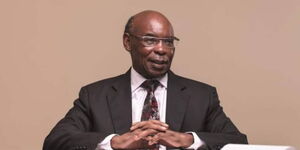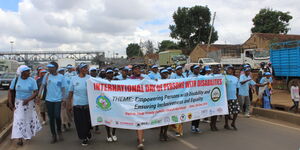A popular Nairobi hospital has been ordered to release the body of a deceased woman, who was detained for two months over pending bills amounting to more than Ksh3 million.
In a ruling delivered on September 23, Justice Nixon Sifuna declared the hospital's actions unlawful, unconstitutional and contrary to public policy.
According to the judge, there was no provision in the Kenyan law which granted hospitals the right to detain bodies as security for unpaid bills. This marks a significant win for Kenyans as the trend of hospitals detaining the bodies of deceased is on the rise.
Hospitals are also detaining patients who fail to clear medical bills. The new ruling however, set a precedent in such cases, allowing patients and families a recorse when their loved ones are detained.
The patient in question in this case passed away on August 2 after more than two months of treatment at the hospital. Following her death, the hospital withheld her body as security to prompt the deceased's family to settle the pending bills in a move which prompted the deceased's two sons to move to court.
In their application, the two sons, who are both still schooling, stated that they had been orphaned and were unable to raise the demanded amount.
On top of the Ksh3.3 million bill, the deceased's family was also being subjected to daily mortuary charges of Ksh2,000.
The brothers further argued that the hospital's refusal to release their mother's body caused emotional trauma and denied her a dignified burial.
In his ruling, the judge agreed as he criticised what was becoming a common practice among hospitals where bodies are detained as a way to "blackmail" grieving families.
“There is no property in a dead body, and correspondingly there cannot be a right of lien on it,” Justice Sifuna said. bodies.
The judge further emphasised that pending bills should be pursued through legal means, not by hoarding a deceased's body.
Subsequently, the court issued a mandatory injunction directing the hospital to immediately release the body upon payment of only the accrued mortuary fees. The remaining medical bill, the judge said, should be pursued separately as a civil debt.
Earlier in September, the Kenya Medical Practitioners and Dentists Council (KMPDC) ordered that hospitals in Kenya have no legal right to detain bodies of deceased patients over pending medical bills.
In a statement shared by the office of the Ombudsman on September 16, KMPDC noted that hospitals should have alternative means to recover any outstanding medical bills from families of deceased patients other than detaining the bodies.












